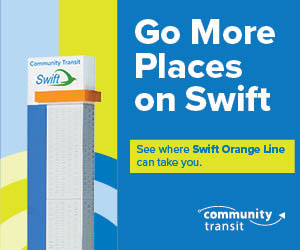City announces eligibility to receive up to $1.88 million in CARES Act funding
by Erin Freeman | Lynnwood Times Staff
At its May 26 virtual business meeting, the Lynnwood City Council was joined by Public Information Officer Julie Moore, who confirmed the city of Lynnwood’s eligibility to receive up to $1,188,000 in Federal CARES Act funding to address COVID-19 related response expenses.
The city is still calculating existing costs and determining needs for the city’s internal response, but according to Moore, the administration is fairly confident that through the CARES Act funding, the city will have at least $500,000 available to allocate towards relief programs.
“We would like to propose and begin working on a business relief program and a community relief program in the CARES Act funding guidelines,” said Moore.
Moore requested two sets of two councilmembers to join city staff to form workgroups to develop criteria and establish an approach for the proposed business relief program and community relief program.
“We know that people are hurting, and they need relief now. We know the government can sometimes take a long time, so we’re hoping… to get our plan in place so we can launch these programs quickly,” explained Moore responding to Councilmember Ian Cotton’s question about the timeline of these workgroups. “For the workgroups, the upfront work will be within the next two weeks to develop and launch the program.”
Council President Christine Frizzell nominated councilmembers Ian Cotton and Shannon Sessions to join the business relief committee and Jim Smith and Julieta Altamirano-Crosby to join the community relief committee.
Later that evening, the council unanimously approved a city ordinance authorizing the imposing of a sales and use tax for affordable and supportive housing. This ordinance will not increase any taxes but will rather funnel 0.0073% of the 6.5% of Lynnwood’s sales tax allocated to the state back into the community at approximately $190,000 per year.
“This is pretty exciting, explained Hurst. “This is the state sharing sales tax so it’s not a new tax on anyone… we can use it for some good uses, of which some are affordable housing and rental assistance to low-income tenants. It’s a good deal.”
The city council continued other business items by discussing Councilmember Jim Smith’s proposal for temporary relief of commercial business event fees for the remainder of 2020, restricting businesses to one event every two months with events lasting no more than five days. Smith argued that the suspension of the close to $400 free to host a special event will kick start Lynnwood’s economy and bring in additional sales tax.
“It’s the small companies that this would have a big impact on, explained Smith. “The $400 is absolutely nothing compared to what we’d be bringing in and it would help our people get started once again.”
Parks and Recreation Deputy Director Sarah Olson presented the challenges of the temporary alleviation, pointing out that businesses pay a $170 hosting permit fee, while $250 of the upfront fee is a liability refundable deposit exempt from private property events. Olson continued, arguing that putting a quantity cap on a business’s events makes it more restrictive rather than less. Pulling data from 2019, she explained that the city only issued 20 special event permits due to most going unregistered, with six of them in the commercial category.
With an initial intent to create fewer restrictions, councilmember Smith made a motion to amend his original motion, eliminating his proposed restrictions on the duration of and timing between events, revising the ordinance to only suspend monetary amounts. The council unanimously approved the revised version of the amendment.
Council then unanimously approved Mayor Nicola Smith to execute an interagency contract with the Washington State Department of Commerce to access the coronavirus relief fund for local governments, allowing the city access to the CARES Act funding of up to $1,188,000.
The council later discussed an ordinance proposed by councilmember Smith regarding the elimination of the city of Lynnwood’s 6% utility tax on water distribution in sewage utilities.
“I know it seems like just a little bit of money from each household, but those struggling make a big difference; It matters a lot to the individuals,” explained Smith. “That’s where I want you to bring your heart to approve this. Let’s pass this and put our citizens above the corporation that we call the city of Lynnwood.”
Finance Director Sonja Springer expressed concern with the budget impact of the permanent elimination of the utility tax, calling it “financially devastating to the general fund” as it would reduce revenue to the general fund by about $150,000 a month, totaling $1.4 million per year. Springer also noted she was warned by financial advisors that it will affect the city’s ability to pay back current debt and could likely result in a decline in bond rates.
After a discussion about the timing of the impact on the city’s finance streams due to the uncertainty of the financial impacts of COVID-19, the council amended the motion four to three to be proposed to be effective as of January 1, 2021. The council then passed the ordinance of the elimination of the water/sewer/water runoff bills four to three in a roll call vote.
Future Lynnwood City Council Business Meetings, Work Sessions and Committee Meetings can be streamed live by the public at https://www.youtube.com/user/CityofLynnwood/live.









2 Responses